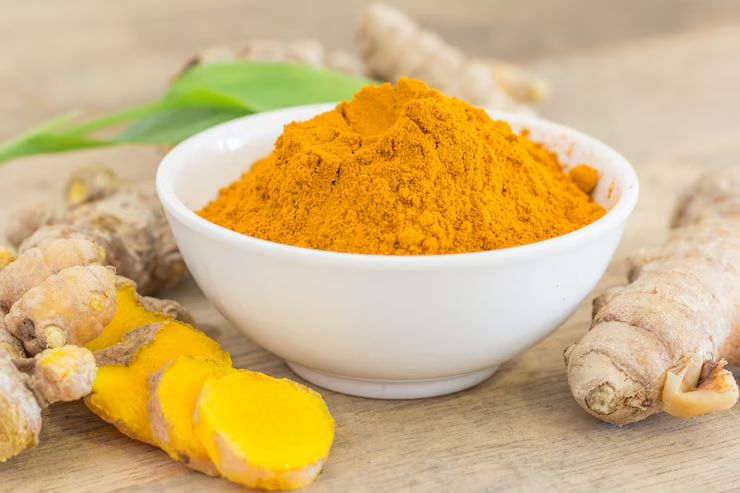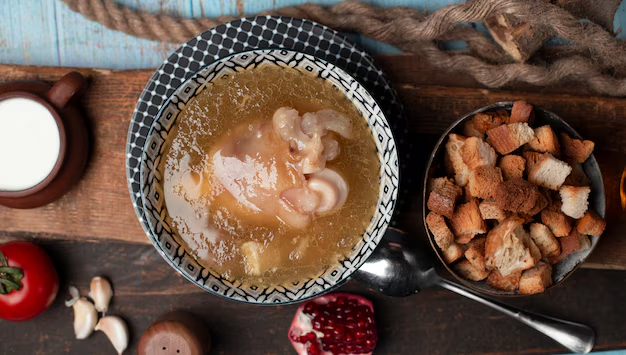Joint health is an important part of overall wellness, yet it’s often overlooked. Whether you’re in your 20s or enjoying retirement, strong and flexible joints help you stay active and independent. Joints are where bones meet, allowing movement. They are supported by cartilage, ligaments, tendons, and synovial fluid. Over time, or due to injuries and conditions like arthritis, joints can wear down, causing pain, stiffness, and reduced mobility.
The good news is that your diet can make a big difference. Eating the right joint health foods can help reduce inflammation, rebuild cartilage, and keep your joints moving smoothly. These foods are rich in nutrients that support the tissues and fluids around your joints, promoting long-term joint comfort and flexibility.
This article focuses on the top joint health foods, explaining how they support joint function and offering tips on how to add them to your meals. A few simple changes to your diet can help protect your joints and improve your daily comfort.

Understanding Joint Health and Inflammation
Before choosing specific foods, it’s helpful to understand what impacts joint health. Factors like age, physical activity, weight, and inflammation all play a role. Joints need proper support to stay flexible and pain-free. Diet is one of the key ways to support them. Eating the right joint health foods can help reduce stiffness, protect cartilage, and support mobility. By focusing on the causes of joint issues first, it’s easier to see how certain foods can improve joint health naturally. Most joint problems stem from one or more of the following issues:
Inflammation: It’s a common cause of joint pain. Long-term inflammation can damage joints and lead to arthritis. Eating joint health foods may help lower inflammation.
Cartilage Wear: Cartilage protects joints from damage. When it breaks down, bones rub together and cause pain. Joint health foods can support cartilage strength.
Poor Lubrication: Joints need fluid to move smoothly. Lack of water or nutrients can reduce this fluid. Joint health foods may help keep joints well-lubricated.
Immune Attacks: In some diseases, the immune system harms joint tissue. Joint health foods might support a balanced immune response.
Nutrients that combat these issues—like omega-3 fatty acids, antioxidants, and certain vitamins—can be found in specific joint-friendly foods.
Top Joint Health Foods and Their Benefits
Let’s look at foods that contribute to better joint health and how they work in your body.
Fatty Fish (Salmon, Mackerel, Sardines)
Fatty fish like salmon, mackerel, and sardines are some of the best joint health foods. They are rich in omega-3 fatty acids, which help reduce inflammation in the body. Since inflammation is a major cause of joint pain and stiffness, eating these fish regularly can support smoother joint movement and less discomfort. Omega-3s may also slow the breakdown of cartilage, offering long-term benefits for joint care.

In addition to omega-3s, fatty fish are good sources of vitamin D, which is important for strong bones and overall joint function. Low vitamin D levels have been linked to increased joint pain, especially in older adults. Adding these joint health foods to your meals a few times a week is a natural and tasty way to support joint comfort and improve your overall joint wellness.
Key Nutrients: Omega-3 fatty acids (EPA and DHA), Vitamin D
Benefits:
Omega-3s reduce inflammation in the joints.
They slow down the progression of arthritis.
Rich in Vitamin D, which supports bone and joint strength.
Pro Tip: Aim for 2-3 servings per week. Grilled or baked preparations preserve nutrients best.
Berries (Blueberries, Strawberries, Raspberries)
Berries like blueberries, strawberries, and raspberries are powerful joint health foods. They are packed with antioxidants, especially vitamin C, which helps protect joints from damage caused by inflammation. These antioxidants also support collagen production, which is important for keeping joints strong and flexible. Eating berries regularly may help reduce joint stiffness and improve overall movement.
Berries also contain plant compounds called anthocyanins that give them their bright color. These compounds have anti-inflammatory effects that can help ease joint pain, especially in people with arthritis. Because of their natural sweetness and health benefits, berries are an easy and delicious way to support joint health. Including these joint health foods in your daily meals or snacks can be a simple step toward maintaining healthier, pain-free joints over time.
Key Nutrients: Antioxidants (anthocyanins), Vitamin C
Benefits:
Fight oxidative stress and inflammation.
Vitamin C supports collagen production, essential for cartilage health.
Pro Tip: Add to smoothies or yogurt for a powerful, joint-boosting breakfast.
Leafy Greens (Spinach, Kale, Swiss Chard)
Leafy greens like spinach, kale, and Swiss chard are excellent joint health foods. They are rich in vitamins A, C, and K, which help reduce inflammation and protect joint tissues. These greens also contain antioxidants that fight harmful free radicals, which can damage joints over time. Vitamin C in particular supports collagen production, which is important for keeping joints strong and flexible.

In addition to their vitamin content, leafy greens provide calcium and magnesium, two minerals that support bone and joint strength. Eating these vegetables regularly may help lower the risk of joint problems and improve joint mobility. Including leafy greens in your diet not only boosts overall health but also supports long-term joint care. As joint health foods, they are a simple and effective way to keep your joints healthy and pain-free.
Key Nutrients: Calcium, Vitamin K, Antioxidants
Benefits:
Strengthen bones around joints.
Anti-inflammatory and protect cartilage from breakdown.
Pro Tip: Lightly sauté or add raw to salads. Avoid overcooking to retain nutrients.
Nuts and Seeds (Walnuts, Chia Seeds, Flaxseeds)
Nuts and seeds like walnuts, chia seeds, and flaxseeds are powerful joint health foods. They are rich in omega-3 fatty acids, which help reduce inflammation that often causes joint pain. These healthy fats support smoother joint movement and may ease stiffness in conditions like arthritis. Including these foods in your diet can naturally protect your joints and reduce discomfort over time.
Besides omega-3s, nuts and seeds also contain fiber, protein, and antioxidants that support overall joint and bone health. Walnuts, for example, have anti-inflammatory compounds, while chia and flaxseeds are good sources of plant-based nutrients. These joint health foods are easy to add to meals—sprinkle them on yogurt, salads, or oatmeal. Making them a regular part of your diet can be a smart and simple way to support joint comfort and strength.
Key Nutrients: Omega-3s, Magnesium, Protein
Benefits:
Combat inflammation naturally.
Magnesium helps maintain healthy cartilage and joint flexibility.
Pro Tip: Add to oatmeal or use as a salad topping. Ground flaxseed is easier to absorb.
Turmeric
Turmeric is a popular spice known for its powerful anti-inflammatory properties, making it one of the best joint health foods. Its active compound, curcumin, has been shown to reduce joint pain and swelling, particularly in conditions like arthritis. Including turmeric in your diet can help lower inflammation and improve joint mobility, allowing for easier movement and less discomfort.
In addition to its anti-inflammatory effects, turmeric also has antioxidant properties that protect joints from oxidative stress. This can help prevent further joint damage and promote overall joint health. Whether added to curries, smoothies, or teas, turmeric is a flavorful and beneficial way to support joint function. Regular consumption of this spice as part of your diet can contribute to long-term joint health and well-being.

Key Nutrient: Curcumin
Benefits:
Potent anti-inflammatory compound.
Comparable to some NSAIDs in reducing joint pain.
Pro Tip: Pair with black pepper to boost absorption. Add to teas, soups, or curries.
Olive Oil
Olive oil is a highly beneficial addition to any diet, especially as a joint health food. It contains oleocanthal, a compound with anti-inflammatory properties that can help reduce pain and swelling in the joints. Regular consumption of olive oil can support joint mobility and may alleviate discomfort, particularly for those with conditions like arthritis. It’s a healthy fat that helps lubricate the joints, making movement smoother and less painful.
In addition to its anti-inflammatory benefits, olive oil is rich in antioxidants that protect joint tissues from damage caused by oxidative stress. These antioxidants can help prevent further joint degeneration. Adding olive oil to salads, cooking, or using it as a dip can be an easy and tasty way to support your joint health. Incorporating this simple yet effective joint health food into your meals can lead to long-term benefits for your joints.
Key Nutrient: Oleocanthal, Healthy fats
Benefits:
Acts as a natural anti-inflammatory.
Protects cartilage by mimicking ibuprofen-like effects.
Pro Tip: Use as a base for salad dressings or drizzle over vegetables.
Garlic and Onions
Garlic and onions are powerful joint health foods known for their anti-inflammatory and antioxidant properties. Both contain compounds like sulfur and flavonoids, which help reduce inflammation in the body. By including garlic and onions in your diet, you can ease joint pain and stiffness, particularly for those suffering from arthritis or other inflammatory conditions. These foods can help protect joint tissues and support overall joint health.
In addition to their anti-inflammatory effects, garlic and onions may help improve blood circulation, which is vital for healthy joint function. Better circulation can deliver essential nutrients to the joints, promoting healing and reducing discomfort. Adding these flavorful foods to your meals, whether in soups, salads, or cooked dishes, can be an easy and effective way to support joint health. Regular consumption can lead to improved joint mobility and comfort over time.
Key Nutrients: Sulfur compounds, Quercetin
Benefits:
Reduce inflammation and bolster the immune system.
Sulfur helps repair cartilage and connective tissue.
Pro Tip: Use fresh for maximum benefit. Ideal for soups, stews, and stir-fries.
Bone Broth

Bone broth is a nourishing joint health food, packed with essential nutrients like collagen, gelatin, and amino acids. These components support the health of your joints by promoting cartilage repair and reducing inflammation. Bone broth helps improve joint flexibility and may alleviate discomfort, especially in people with arthritis or joint stiffness. The collagen in bone broth plays a key role in maintaining strong and healthy joint tissues.
In addition to its joint-supporting properties, bone broth is rich in minerals like calcium and magnesium, which are essential for bone health. Drinking bone broth regularly can help strengthen bones and support overall joint function. Whether enjoyed as a warm drink or used as a base for soups and stews, bone broth is a simple, nutrient-dense way to nourish and protect your joints.
Key Nutrients: Collagen, Glucosamine, Chondroitin
Benefits:
Provides building blocks for joint repair.
Helps reduce joint pain and stiffness.
Pro Tip: Use as a base for soups or sip like tea. Look for long-simmered broths for higher collagen content.
Joint-Friendly Meal Plan Ideas
Here are some simple and delicious ideas to incorporate these foods into your daily routine:
Breakfast
Chia seed pudding with berries and walnuts
Oatmeal with flaxseeds and a drizzle of honey
Green smoothie with spinach, banana, and ground turmeric
Lunch
Quinoa salad with kale, grilled salmon, and olive oil dressing
Turkey and avocado sandwich on whole grain bread
Lentil soup with garlic and bone broth
Dinner
Baked mackerel with sweet potatoes and steamed broccoli
Chicken stir-fry with turmeric, onions, and bell peppers
Brown rice bowl with tofu, spinach, and sesame seeds
Snacks
Handful of almonds or walnuts
Greek yogurt with honey and berries
Green tea with a piece of dark chocolate
Foods to Avoid for Joint Health
Just as some foods help joints, others can worsen inflammation or leach minerals needed for bone and cartilage strength. Limit or avoid:
Processed sugars: Fuel inflammation and worsen arthritis symptoms.
Trans fats: Found in fried foods and packaged snacks, these are joint health enemies.
Refined carbs: White bread and pasta can spike blood sugar and increase inflammation.
Red and processed meats: Associated with higher inflammatory markers.
Excess alcohol: Can dehydrate joints and lead to flare-ups in arthritis sufferers.
Lifestyle Tips for Joint Longevity

In addition to a joint-friendly diet, consider the following habits to support your joints:
Stay active: Engaging in regular, low-impact exercises such as swimming, walking, or cycling helps keep your joints flexible and muscles strong. These activities improve circulation and promote overall joint health. When paired with joint health foods, staying active can enhance mobility and prevent stiffness over time.
Maintain a healthy weight: Carrying extra weight places additional stress on weight-bearing joints, especially the knees, hips, and lower back. By maintaining a healthy weight, you can reduce this strain, lowering the risk of joint pain and conditions like osteoarthritis. Combining a balanced diet with joint health foods can further support your joints.
Hydrate: Proper hydration is essential for the production of synovial fluid, which lubricates the joints and allows for smooth movement. Drinking enough water each day, along with consuming joint health foods, can help maintain this fluid and prevent joint discomfort.
Stretch daily: Stretching exercises help improve flexibility, which can protect your joints from strain and injury. Including daily stretching with joint health foods may help prevent stiffness and improve joint function.
Avoid smoking: Smoking reduces blood flow to joint tissues, hindering their ability to repair and maintain health. By quitting smoking and including joint health foods in your diet, you can promote better joint repair and overall well-being.
Conclusion: Nourish Your Joints, Empower Your Life
Focusing on the right joint health foods is essential for protecting your joints and maintaining smooth, pain-free movement. These foods supply vital nutrients that help fight inflammation, support cartilage repair, and keep your joints functioning at their best.
Including a diverse range of joint health foods like oily fish, colorful fruits, and leafy vegetables ensures your body gets the antioxidants, healthy fats, and vitamins necessary for joint longevity. When paired with an active lifestyle, these foods can help prevent joint stiffness and reduce discomfort linked to arthritis.
Including joint health foods into your everyday meals is a smart step toward preserving your mobility and improving your overall well-being. By nourishing your joints properly, you empower yourself to stay active and enjoy life to the fullest for years to come.
FAQs
- What are the best foods for joint health ?
The best foods for joint health include fatty fish like salmon and mackerel, berries, leafy greens, nuts and seeds, turmeric, olive oil, and bone broth. These foods are rich in anti-inflammatory nutrients, antioxidants, and compounds that help support cartilage and reduce joint pain. - How do joint health foods help reduce joint pain ?
Joint health foods often contain omega-3 fatty acids, antioxidants, and anti-inflammatory compounds that help lower inflammation in the joints, protect cartilage from damage, and promote repair, which together can reduce pain and stiffness. - Can diet alone improve joint health ?
While diet plays a crucial role in supporting joint health, combining nutrient-rich foods with regular exercise, weight management, and proper hydration is the most effective way to maintain healthy joints and reduce discomfort. - Are supplements better than whole joint health foods ?
Supplements can provide concentrated doses of certain nutrients but don’t offer the full range of benefits that whole foods do, including fiber and additional antioxidants. It’s best to focus on a balanced diet first and use supplements under medical guidance. - How long does it take to see improvements in joint health after changing diet ?
Improvements vary by individual and condition, but many people notice reduced inflammation and joint comfort within a few weeks to a few months of consistently eating joint-supportive foods alongside a healthy lifestyle.


